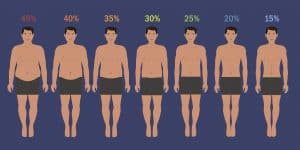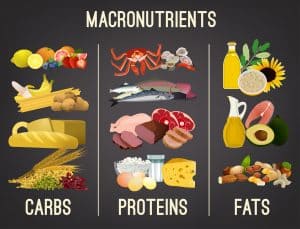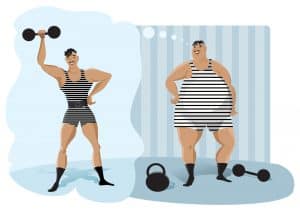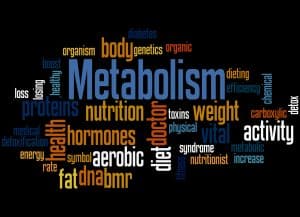There are two types of lifters who usually ask this question.
Beginners that want to reduce body fat and think that lifting weights on an empty stomach might help.
And lifters who don’t have time to eat in the morning before working out.
If you want to lose body fat, maximize muscle gain, or build strength, lifting weights on an empty stomach is a bad idea.
In this post, I’ll tell you the exact reasons why.
And if drinking a protein shake in the morning makes you nauseous and want to throw up, I’ll tell you what to do about it if you have no choice but to train on an empty stomach.
4 reasons why lifting weights on empty stomach is a bad idea
There could be more personal reasons directly related to your health. In that case, consult with your physician.
Otherwise, these are the 4 general reasons why lifting weights on an empty stomach is not ideal for muscle and strength gains.
1
Weightlifting is catabolic in nature.
First, let’s define an important concept called muscle protein balance.
This is a balance between two processes that occur naturally in the body:
Muscle protein synthesis and muscle protein breakdown.
The former is when the muscle utilizes amino acids from external sources such as food or supplements to build new muscle fibers.
The latter is when the muscle uses its own fibers (own amino acids) as an energy source.
When muscle protein breakdown is higher than synthesis ….
You lose muscle!
While protein breakdown is unavoidable, in order to maximize lean muscle mass gain, you have to keep the synthesis elevated and/or reduce the levels of muscle protein breakdown.
Lifting weight during a workout causes your muscle fibers to be torn down and damaged. This increases muscle protein breakdown, a catabolic process.
If macronutrients are not readily available as a source to supply the muscle with energy, the muscle starts to break down its own fibers (amino acids) to use for energy!
This further accelerates the protein breakdown and causes you to lose muscle.
This could have a very profound impact on your muscle size in the long run if you don’t properly have an adequate supply of post-workout nutrition.
2
Higher cortisol levels.
Cortisol in excess is the stress hormone. And it’s catabolic.
Both fasting for long hours and weightlifting increase the stress on your body which leads to higher cortisol levels.
Pertaining to the previous point, elevated cortisol in the body is a major contributor to muscle protein breakdown.
3
You won’t get great muscle pump
During the weightlifting sessions, your muscles demand a high energy supply from macronutrients, especially carbohydrates and protein. A process called Energy Phase.
Muscle pump is the result of two processes during the energy phase:
1- Dilation of the blood vessels that enhances oxygen and nutrients delivery to the muscles.
On an empty stomach, your body is amino acids-deficient (L-citrulline and L-arginine, in particular). Both of them are used to produce nitric oxide, which is the molecule responsible for widening your blood vessels and increasing the muscle pump.
2- ATP energy production.
Where ATP (Adenosine triphosphate) is the molecule that captures the chemical energy from macronutrient breakdown and delivers it to the muscle cells.
Training on an empty stomach, means you have low carbohydrate that’s ready to be broken down into glucose and delivered by the ATP to your muscle for energy.
Therefore, as a result of carbohydrates and amino acids shortage will not have a satisfactory muscle pump during the workout.
4
You will crash after the post workout meal
Fasting for a long time lowers your insulin sensitivity leading to fewer nutrients delivered to your muscles.
Having a post-workout meal (particularly one that includes carbohydrates) after fasted training causes a sudden increase in insulin levels in the blood (blood sugar).
This big fluctuation of blood sugar could have harmful consequences to your health.
Aside from blood sugar fluctuation, consuming a post-workout meal after fasted weightlifting re-distributes the blood flow unevenly to your stomach away from your extremities.
This causes you to crash and feel very tired and exhausted.
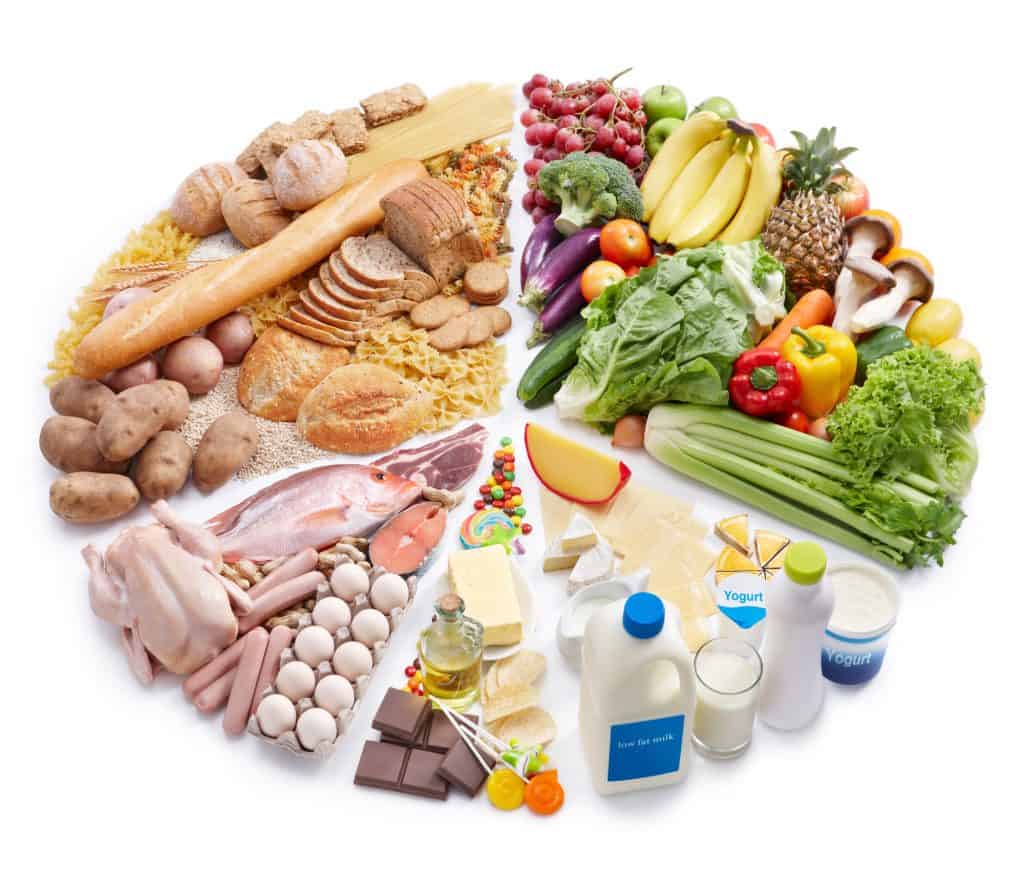
3 tips to help you train on an empty stomach
By now, you know that nutrition timing matters for muscle and strength gain.
But, if you have no choice but to train on an empty stomach here are some alternatives.
1
weight loss? Fasted cardio!
If you are lifting weights on an empty stomach thinking that it leads to weight loss.
It won’t!
It might in the first couple of weeks. But quickly your body will adapt to it and won’t have an impact on your fat loss.
Fat loss is determined by your total caloric consumption and energy expenditure and not by the timing of training.
With that being said, only steady-state fasted cardio was shown to have an impact on fat loss.
This is because when your body is carb depleted, the major source of energy is the body fat and muscles, to some extent.
When done in a moderate to slow steady-state, fasted cardio won’t tear your muscle fibers leaving body fat as the only choice for energy.
2
Have a full meal before going to bed.
Especially one that has enough carbohydrates and fats.
The carbohydrates will be broken down into glycogen stored in the muscle. However, since carbs are quickly consumed for energy, the combined fat will slow down the carb synthesis.
When you wake up the next day and workout, you will have enough energy reserve to carry you through the training session.
3
Drink Essential amino acids + pre-digested carbs.
Drinking a protein shake, whey protein for example, in the morning will take some time to be broken down into amino acids and might cause you to feel like you want to throw up.
Instead, use flavorless essential amino acids and pre-digested carbohydrates in powder form.
Essential amino acids are pre-digested broken down proteins so they are easy and quick to absorb.
Fast-acting carbohydrates, like cluster dextrin, are also pre-digested flavorless carbohydrates.
Combine these two supplements and consume them with water before working out. They will provide a quick supply of glucose and amino acids that will become readily and quickly available to the muscles.








